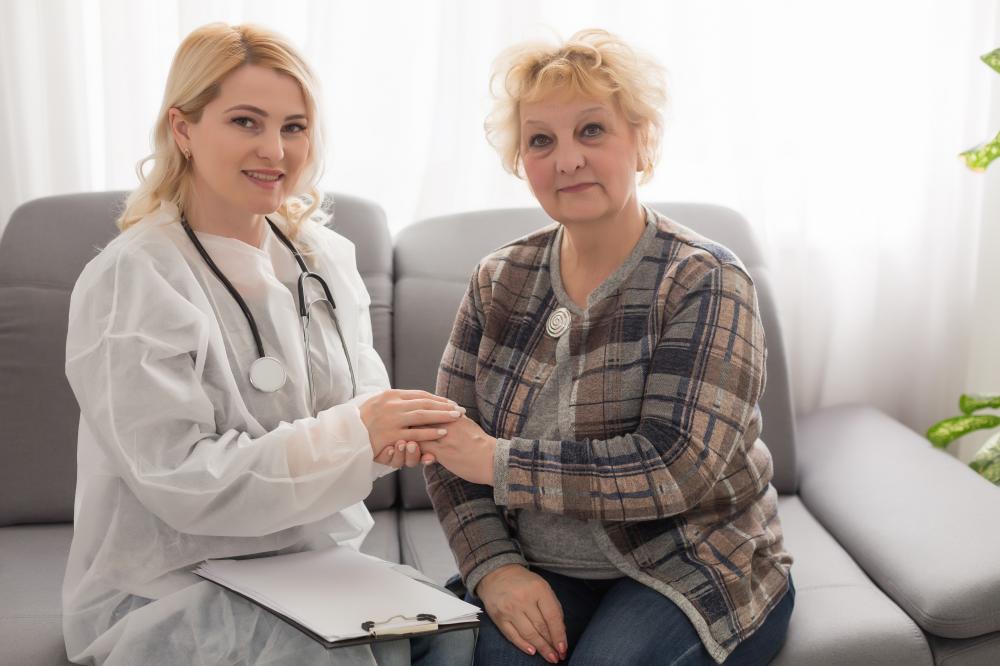
Residential Treatment for Schizoaffective Disorder
Embarking on the journey of Residential Treatment for Schizoaffective Disorder is akin to navigating a complex labyrinth. For those entangled in the clutches of schizoaffective disorder, the path to wellness often involves traversing through a blend of psychosis and mood disorder symptoms. This unique challenge demands an equally unique approach to care–one that is holistic, personalized, and deeply empathetic.
The Importance of Personalized Care
In the realm of severe mental illnesses, schizoaffective disorder stands out for its complexity. Combining symptoms of schizophrenia with mood disorder elements, it necessitates a treatment protocol that is as multifaceted as the condition itself. At the heart of Residential Treatment for Schizoaffective Disorder lies the core principle of personalized care. This approach is not just about tailoring healthcare services to each individual; it’s about recognizing and validating the human experience behind the diagnosis.
Personalized care translates into detailed assessments, bespoke treatment plans, and a therapeutic alliance crafted around the person, not just the patient. This human-centric focus fosters a therapeutic environment where individuals feel seen, heard, and understood–crucial components for healing.
Integrated Treatment Modalities
Combining Therapies for Comprehensive Healing
Effectively addressing schizoaffective disorder requires an orchestra of therapeutic modalities, each playing a vital role in the symphony of recovery. The integration of psychotherapy, medication management, and life skills training, among others, creates a harmonious blend of interventions that target the disorder from every angle.
Nutritional and Recreational Therapy: The Unseen Allies
Beyond traditional therapies, incorporating elements like nutrition and recreational activities plays a significant role in holistic healing. Nutritional planning focuses on fostering physical health, which in turn supports mental well-being. Recreational therapy, on the other hand, opens new avenues for expression, relaxation, and socialization–key aspects of recovery that are often overshadowed by clinical treatments.
Family Involvement in Recovery
The journey through schizoaffective disorder is seldom a solitary one. Family involvement becomes a pivotal pillar, offering unparalleled support, understanding, and hope. Engaging families through educational programs, therapy sessions, and support groups enriches the recovery process, creating a network of care that extends beyond the walls of the treatment center.
Through shared experiences and collective learning, families become integral members of the care team. This collaborative approach not only strengthens the support system but also empowers families to foster a home environment conducive to continued healing and growth.
Navigating the Challenges of Schizoaffective Disorder
Understanding the Spectrum of Symptoms
Schizoaffective disorder manifests as a spectrum, where symptoms range from severe mood swings to hallucinations and delusions. Grasping the full scope of this disorder is crucial for developing effective treatment strategies. Knowledge of the disorder’s dual nature allows for a more nuanced approach to care, one that addresses both the psychotic and mood-related aspects.
The Road to Self-Sufficiency
A critical goal of Residential Treatment for Schizoaffective Disorder is to equip individuals with the skills necessary for independent living. From managing medications and appointments to navigating social interactions and employment, the transition towards self-sufficiency is an empowering journey. This process involves a gradual reduction in structured support, enabling individuals to build confidence in their abilities to lead fulfilling lives.
Embracing Community Integration
Integration into the community marks a significant milestone in the recovery journey. This phase encourages individuals to apply their newly acquired skills in real-world settings, fostering independence and resilience. Supportive living options serve as a transition phase, offering a blend of autonomy and access to ongoing support services.
Community integration initiatives also include vocational training and volunteer opportunities, providing platforms for individuals to rediscover their strengths, interests, and aspirations. These experiences not only contribute to personal growth but also to societal enrichment, challenging the stigma surrounding mental health.
Sustaining Progress: The Long-Term Perspective
Recovery from schizoaffective disorder is an ongoing journey, marked by continuous growth and occasional setbacks. The transition from residential care to independent living is a testament to significant progress, yet the journey does not end there.
Maintaining wellness requires a commitment to self-care, adherence to treatment plans, and active engagement in support networks. Lifelong learning and adaptability become key traits, enabling individuals to navigate the complexities of life with resilience and grace.
Residential Treatment for Schizoaffective Disorder offers a comprehensive pathway to recovery, emphasizing personalized care, integrated treatment modalities, and the invaluable role of family and community. By fostering environments that nurture mind, body, and spirit, individuals are empowered to reclaim their lives, moving forward with hope, purpose, and a renewed sense of self.

What are the unique benefits of residential treatment for schizoaffective disorder?
Residential treatment offers a structured and therapeutic environment that is often crucial for those dealing with the complexities of schizoaffective disorder. Unlike outpatient settings, residential facilities like ours in Georgetown, Texas, provide continuous support and monitoring, ensuring safety and reducing the risk of relapse. This immersive setting allows for a holistic approach to treatment, addressing not only the psychological aspects of the disorder but also social, behavioral, and lifestyle factors. Personalized care plans, a hallmark of our approach, enable us to tailor interventions to each resident’s needs, fostering more profound healing and more durable recovery. Through therapeutic modalities such as cognitive behavioral therapy, medication management, and life skills training, plus the integration of nutrition and recreational therapy, our residents receive comprehensive care that aims to improve every area of their lives.
What are common misconceptions about schizoaffective disorder and how does residential treatment help dispel these?
One prevalent misconception about schizoaffective disorder is that it is simply a combination of schizophrenia and a mood disorder, which oversimplifies the complexity of the illness. This viewpoint can hinder the understanding of the unique needs and challenges faced by those affected. In a residential setting, we actively work to educate not only our residents but also their families and the broader community about the nuanced nature of schizoaffective disorder. Through comprehensive assessments and personalized treatment plans, we showcase the distinct ways in which the disorder manifests and affects each individual. This approach helps to break down stereotypes and fosters a more compassionate and informed perspective on mental health.
How does family involvement in residential treatment impact recovery from schizoaffective disorder?
Family involvement is pivotal in the recovery process for individuals with schizoaffective disorder. Engaging families through education, support groups, and therapy sessions provides a solid support system for our residents. This inclusion not only aids in the healing process but also equips families with the knowledge and tools necessary to maintain a conducive environment for recovery at home. Through shared experiences and collective learning, families become indispensable allies in the care team, enhancing the effectiveness of treatment and fostering a network of support that extends beyond our facilities.
What steps are taken in residential treatment to prepare individuals for a self-sufficient life post-treatment?
A crucial aspect of residential treatment is preparing our residents for life after they leave our facility. This preparation involves teaching life skills, medication management, and social integration techniques that are vital for independent living. Graduate supports, such as supportive housing and vocational training, are also part of the recovery journey, ensuring a smoother transition to community living. Our aim is to gradually reduce the intensity of structured support, empowering residents to build confidence in their abilities. Through personalized care and continuous encouragement, we help our residents navigate the path toward self-sufficiency, making the journey an empowering experience that fosters long-term resilience and fulfillment.
How does residential treatment for schizoaffective disorder lay the foundation for long-term recovery?
Residential treatment provides a critical foundation for long-term recovery by addressing the disorder from a holistic perspective. In our Georgetown, Texas facility, we emphasize the integration of comprehensive care strategies that focus on the mind, body, and spirit. Our approach extends beyond symptom management to include strategies for managing stress, improving physical health through nutrition and exercise, and fostering social connections. By creating a personalized treatment plan that evolves with each resident’s journey, we aim to build the skills and resilience necessary for maintaining wellness over the long term. This thorough preparation encourages our residents to engage actively in their recovery process, ensuring they have the tools needed to navigate life’s challenges post-treatment.






